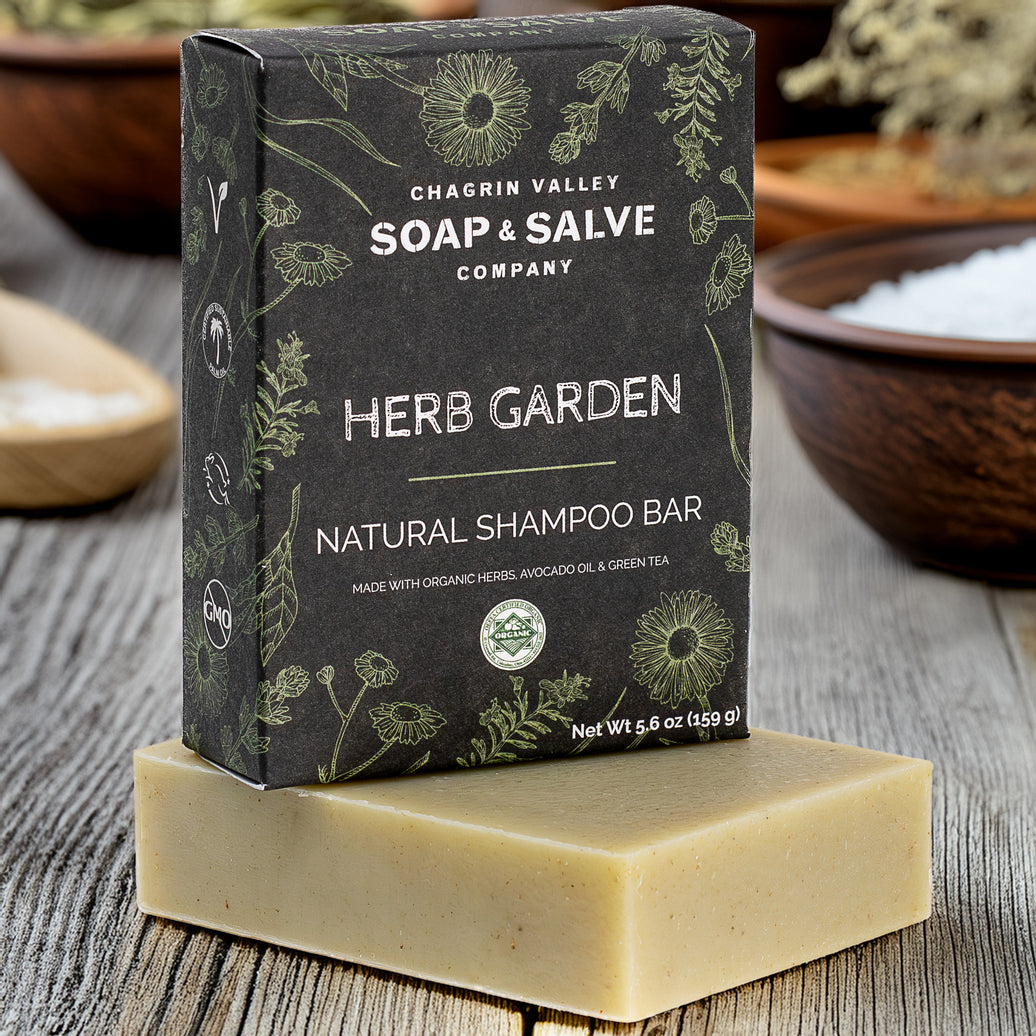
Shampoo Bar: Herb Garden
- Out Of Stock
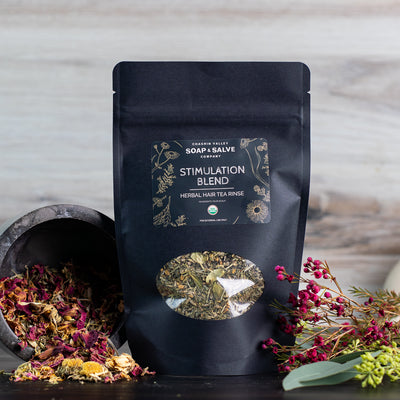
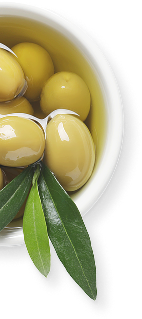
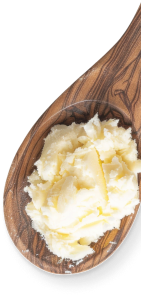
A organic herbal hair rinse formulated for a holistic approach to scalp stimulation that may help with excess shedding and hair loss.






Drench your hair with the power of plants in this organic botanical hair rinse formulated for a holistic approach to scalp stimulation. For thousands of years, herbs have been used to nourish the scalp and promote the growth of strong, healthy hair.
Our Stimulation Hair Rinse is made with a combination of herbs that will help stimulate and strengthen your roots, and promote healthy hair growth to help with excess shedding.
1 bag contains about 1 cup of tea, enough for at least 4 - 8 hair rinses
Reusable cotton muslin bag included!
Directions for a Simple Herbal Hair Rinse Tea:
Always make and store herbal hair preparations in nonreactive containers. Refrigerate leftover hair tea for 7-10 days in a clean airtight container. Do not refrigerate tea in an aluminum container.
For more recipes please read How to Use Herbal Hair Tea Rinses
For external use only!
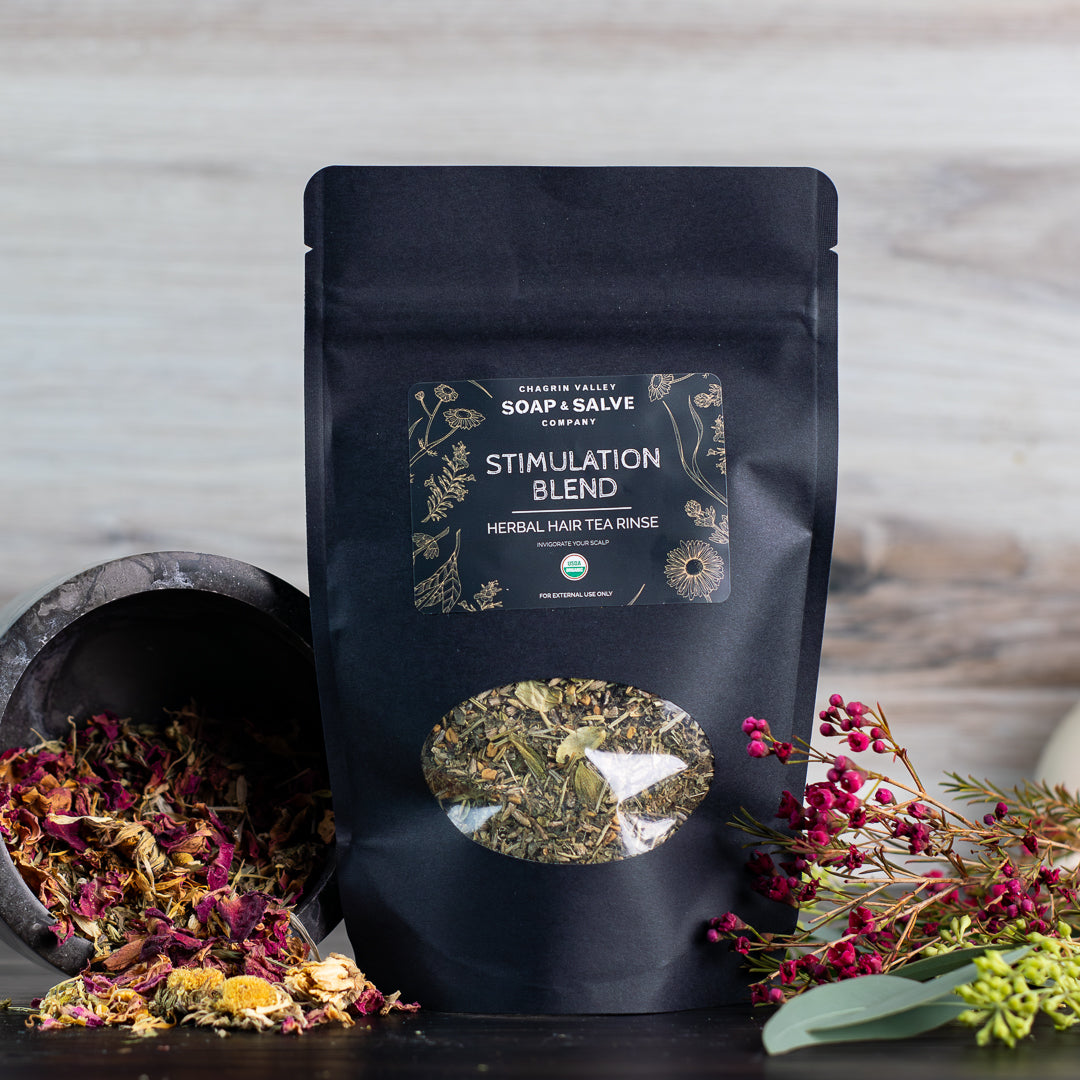
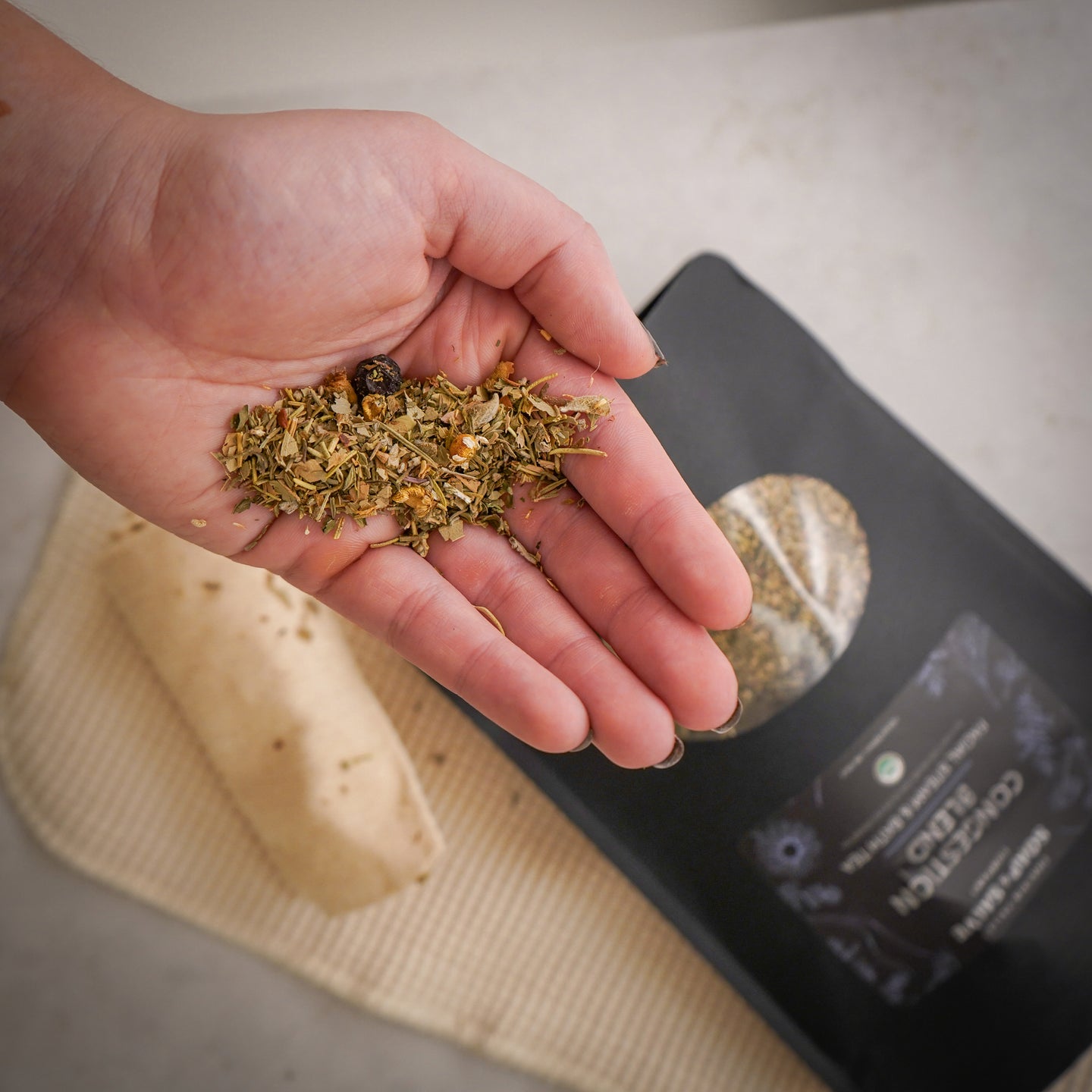
The goal is simple: to Harness the Power & Simplicity of Nature® to cleanse, soothe, heal, and protect your skin and hair!
Our unique formulas rely on moisturizing oils and butters, healing botanicals, and pure essential oils. We choose every ingredient with one end-result in mind….the BEST possible natural skin care for YOU!
 Organic Basil
Organic Basil
 Organic Green Tea
Organic Green Tea
 Organic Fenugreek
Organic Fenugreek

The most important consideration in any business is its customers. Today's world of misleading claims, false advertising, and simple deception, often leaves consumers trying to discover the truth about personal products and their ingredients.
Some of my favorite products are made with ingredients that just do not exist as certified organic. Why? At this time there are no standards created for ingredients specifically used in the personal care product industry. Organic certification of personal care products is based on the organic food standards set by the National Organic Program of the USDA.
But since we are a certified organic company, we are required to submit documentation that even our "non-organic ingredients" were produced without the use of toxic pesticides, genetically modified organisms (GMOs), sewage sludge, or irradiation.

Why Did We Become a Certified Organic Company?
What Do All of the Organic Labels Mean?
The wholesome goodness of our handcrafted soap is available for your hair.
Shampoo bars are an all natural conditioning shampoo in a solid bar form. Yes, this is real shampoo in a solid bar. Shampoo bars are not a new idea.
They were commonly used before liquid detergent shampoos and conditions were invented in the 1940s.
Although the process for making a shampoo bar is the same as making soap, our shampoo bar "recipes" are specially formulated with natural plant oils, butters, botanicals and essential oils that nourish your hair and scalp.
Our shampoo bars contain no artificial fragrance, color, preservatives, detergents, alcohol, urea, formaldehyde, sodium lauryl sulfate, DEA, propylene glycol - or any of the other synthetic hair care additives.
Each of our shampoo bar selections contains a different blend of natural plant oils, essential oils, and herb infused oils. No two recipes are the same.
Click here for help choosing an all natural shampoo bar!
Please read "Everything About Shampoo Bars!"
Men and women with short hair seldom have hair adjustment problems to natural shampoo bars. However, folks with long hair may have to change their shampoo technique when switching from commercial liquid shampoo or synthetic detergent shampoo bars to natural bars.
We have discovered that people with long hair often feel the need to use too much shampoo. Also, it is more difficult to rinse shampoo out of all the little nooks and crannies in long hair. As a result, there are pockets of soap residue left in the hair that make hair feel tacky.
I have found that many times the proper technique makes all the difference.
 I have long, fine hair. Below is my technique for using a shampoo bar.
I have long, fine hair. Below is my technique for using a shampoo bar.
Dry and style your hair as usual!
The "certified organic" labeling has been developed by the USDA and refers to organic claims and labeling on food and personal care products in the United States. The USDA has very strict guidelines for the percentage of organic ingredients necessary to receive organic certification. Other countries have their own certification procedures, requirements, and standards. Labeling criteria and allowable ingredients differ from those in the US.
 The USDA Organic Logo Label can be used on products that meet the standards of the first two tiers of the organic labeling system in which 95 - 100% of the ingredients are certified organic.
The USDA Organic Logo Label can be used on products that meet the standards of the first two tiers of the organic labeling system in which 95 - 100% of the ingredients are certified organic.
Most of our non-soap products fall into this category and display the USDA logo!
 The Certified Organic by OEFFA label is used in our company for two reasons . . .
The Certified Organic by OEFFA label is used in our company for two reasons . . .
Soaps and Shampoos: These products contain at least 8% of the sodium hydroxide due to the process of soapmaking. Our "organic" soap is about 87% to 92% organic, but the USDA standard states that a product must be made of 95-100% organic ingredients in order to bear the USDA Certified Organic seal shown above. We are also not allowed to use the words "organic soap" on the label.
Wildharvested Ingredients: When using any agricultural ingredient (any ingredient that has a biological origin) that is not certified organic the same labeling rules we use for soap apply.
The USDA rules for proper labeling state that the products may display the certifying agent's logo but not the USDA organic logo. Our USDA certifying agency is OEFFA (The Ohio Ecological Food and Farm Association). Their logo is displayed on our "organic" soaps and shampoos.
Why do some soap companies use the word "organic" on their labels--even though it is against the rules? Click Here to Read More about Rules for Organic Labeling of Soap!
We sometimes use an unofficial symbol for products made with "natural" ingredients that do not meet the criteria for either label above. You may see this type of symbol on products, like the Dead Sea Black Clay, Bamboo Charcoal, and Loofah Pumice Foot Soaps and our Mud & Clay and Rosemary Mint Charcoal Shampoo Bars.
Organic certification is based on organic farming and agriculture standards. As a result, the list of allowable non-agricultural ingredients (like clay, salt, mud etc) is based on raw materials used in agriculture or food production. Unfortunately, ingredients like some Clays, Pumice, Dead Sea Mud and Bamboo Charcoal are not used in farming or food production and thus do not appear on the list.
Although it may seem long, this is really a very brief description. For more detailed information please read, "What Do All Of The Organic Labels Mean?"

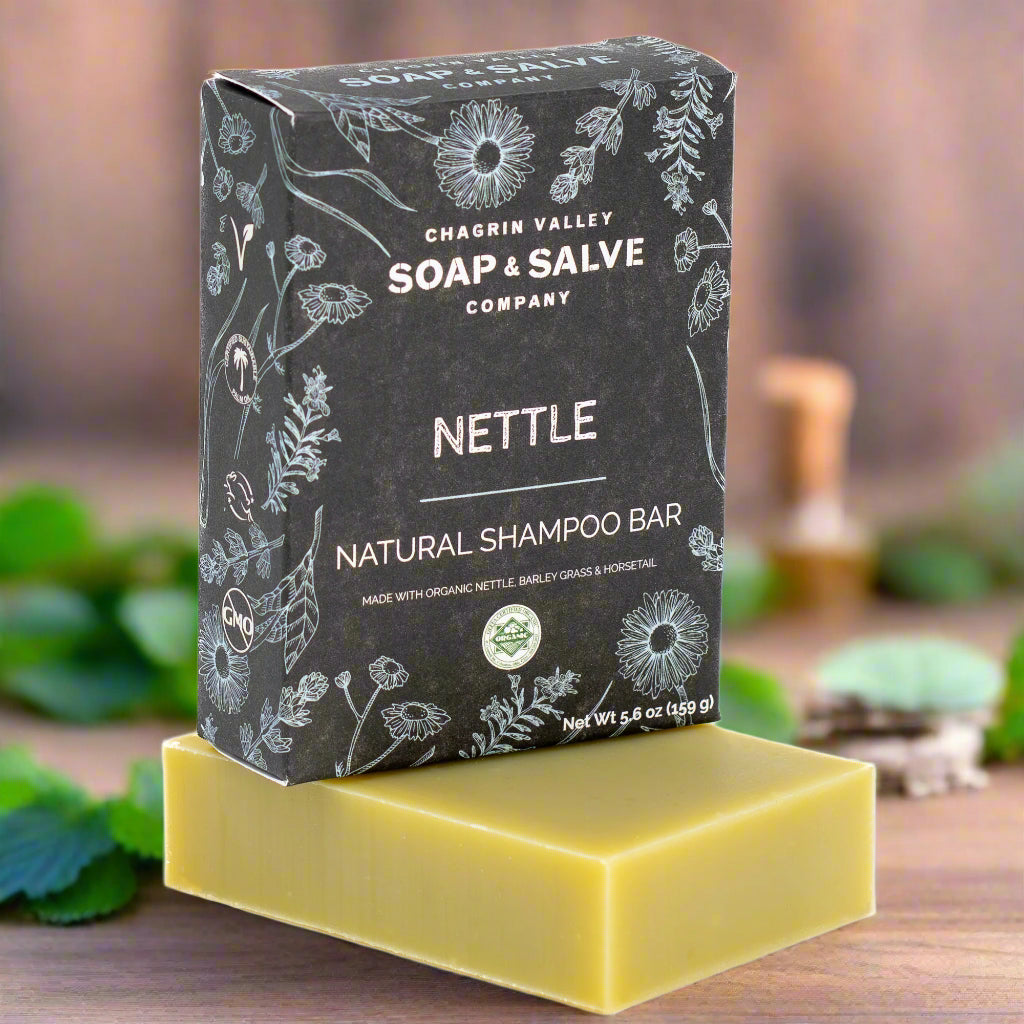
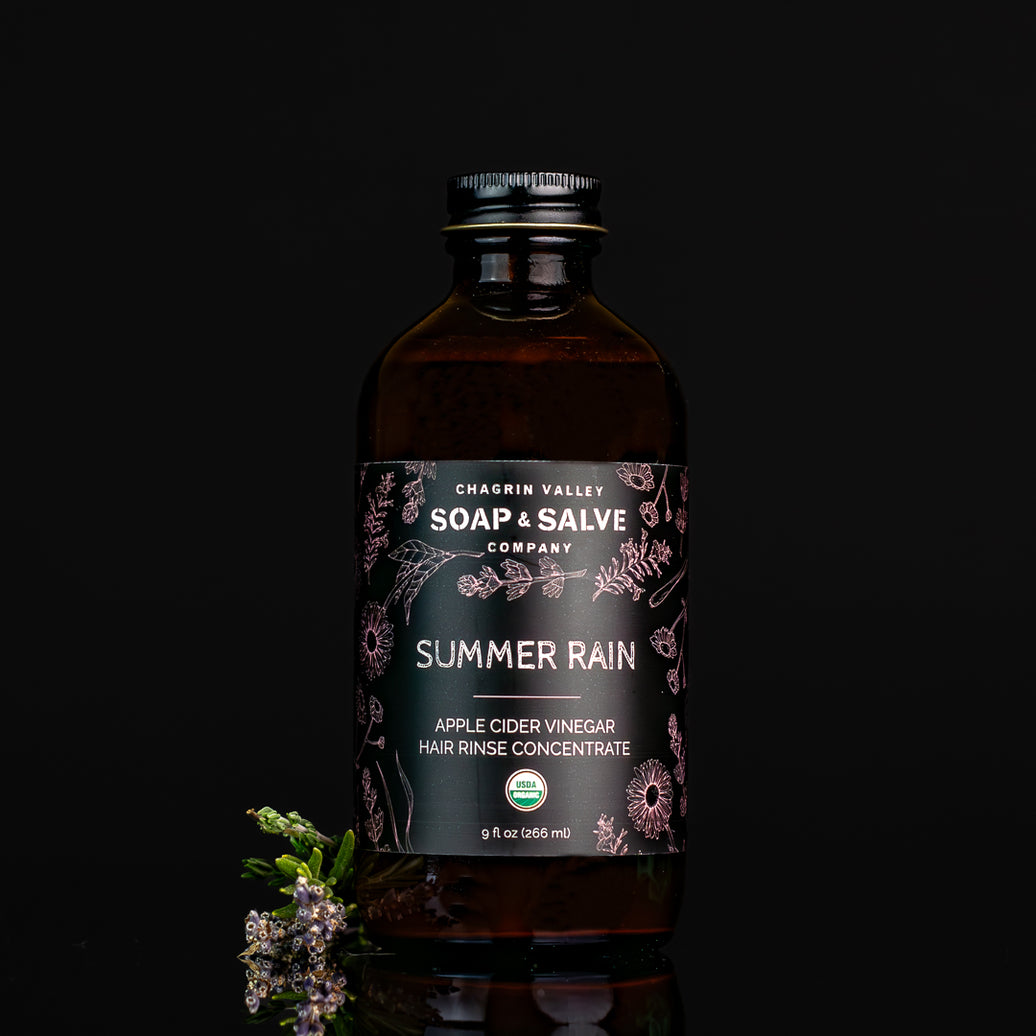
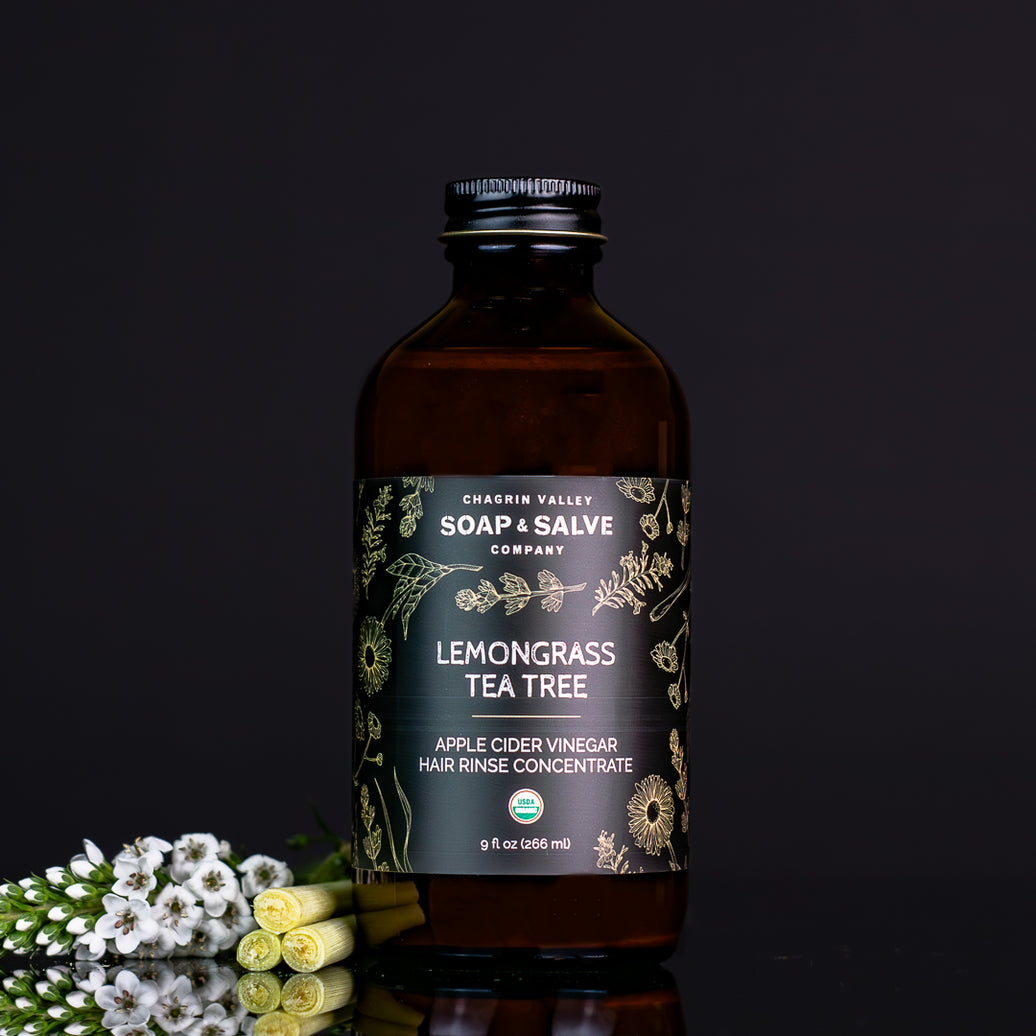
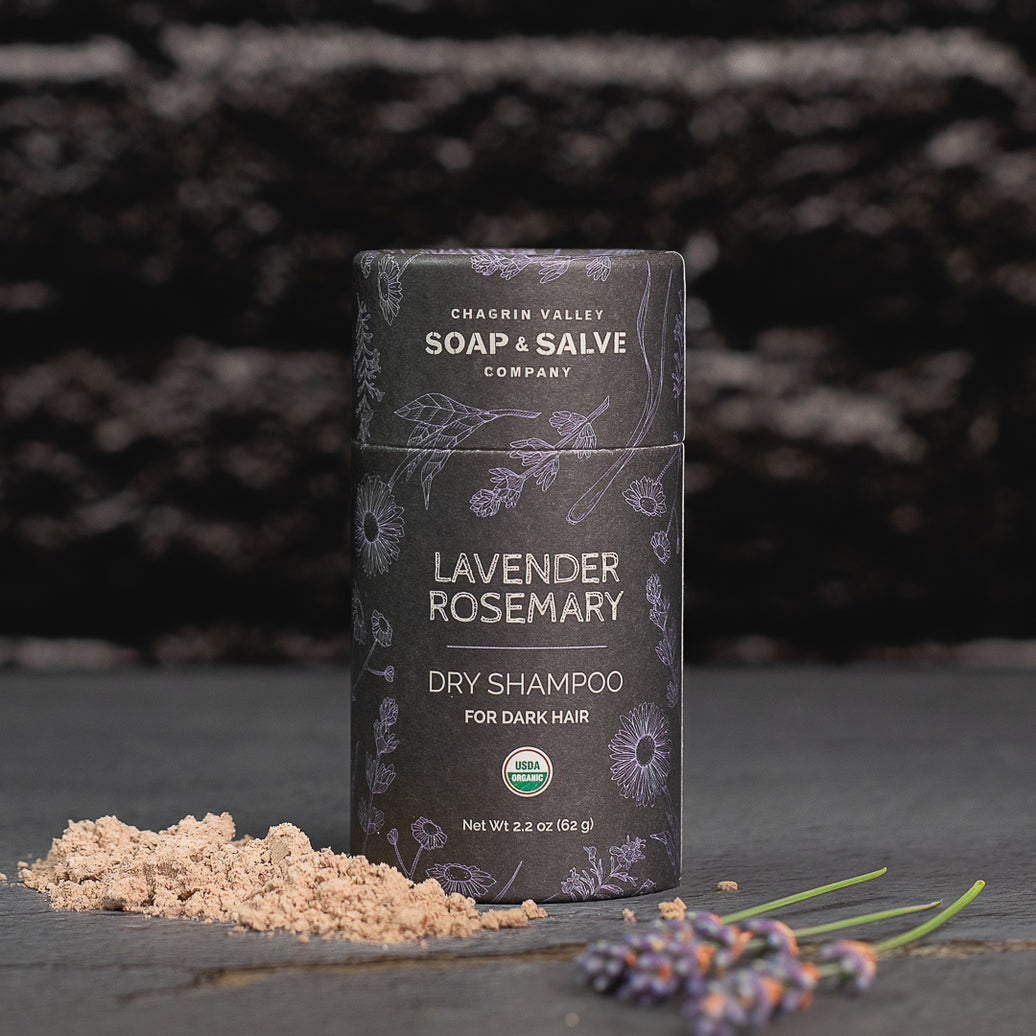
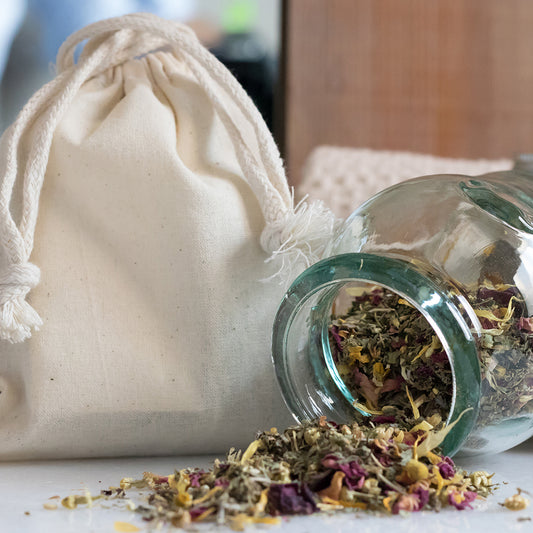
Herbal infusions have been used for centuries to naturally soften hair, enrich natural hair color, soothe irritation, prevent dandruff, stimulate the scalp, and restore luster, body, and bounce.
Read Post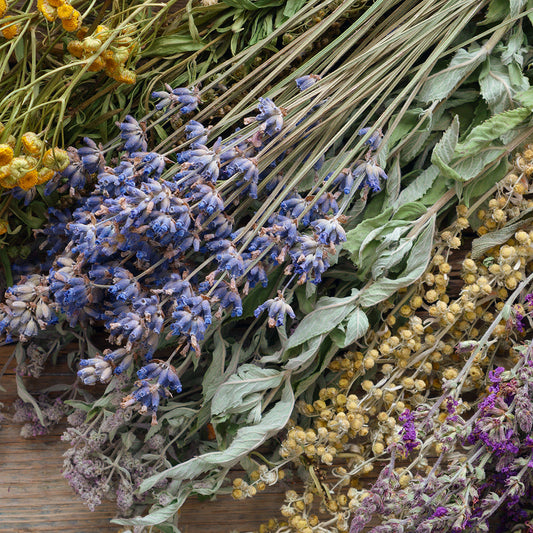
Herbal infusions have been used for centuries to naturally soften hair, increase manageability, and restore luster, body, and bounce. Learn why they work and how to prepare them.
Read Post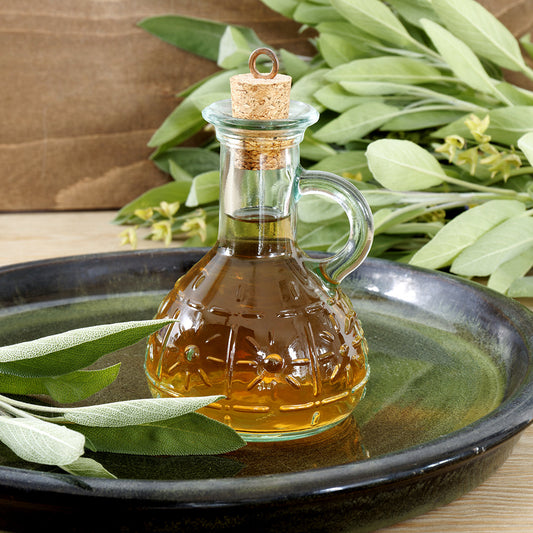
Raw apple cider vinegar (ACV) can help with tangles, bring back body and shine, clarify residue, stimulate the scalp, decrease dandruff, and unclog hair follicles to help with excess shedding.
Read Post